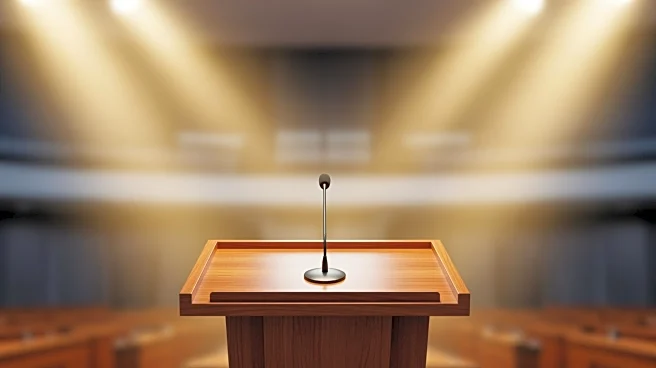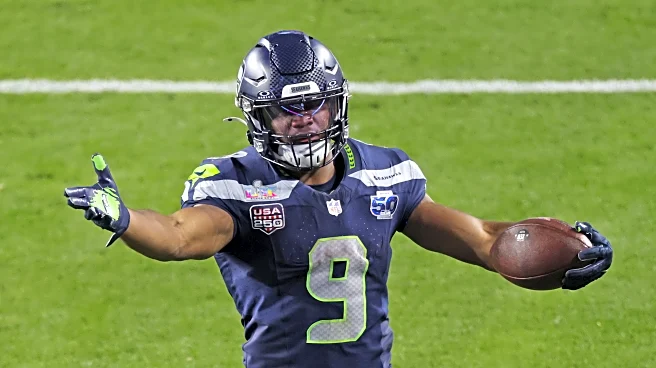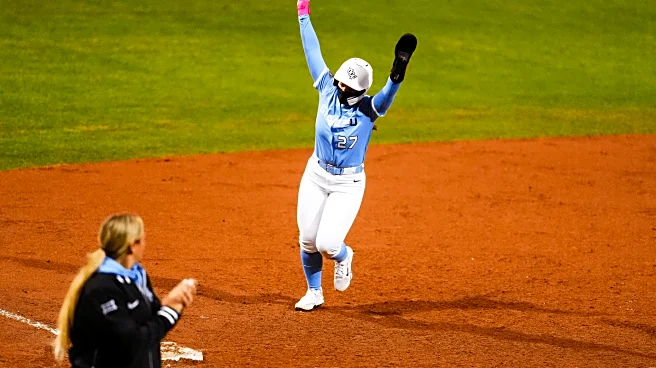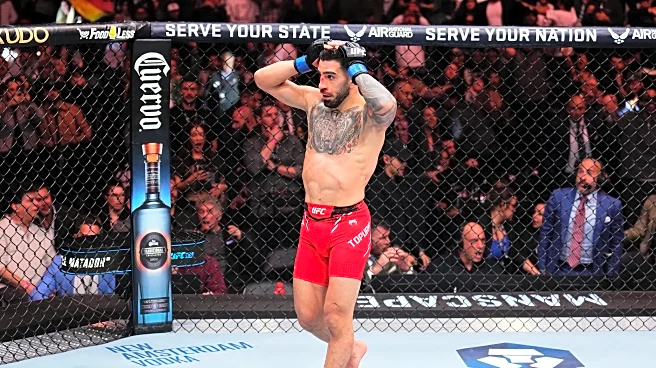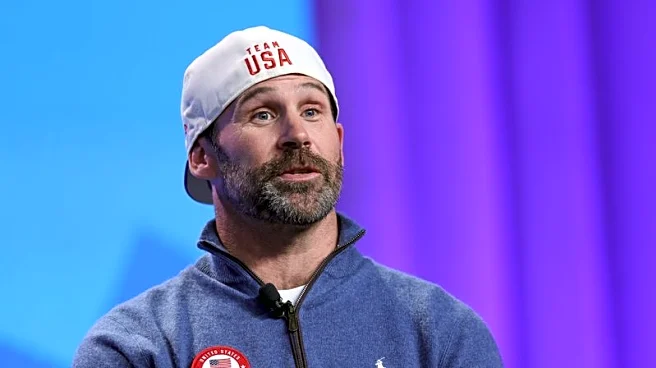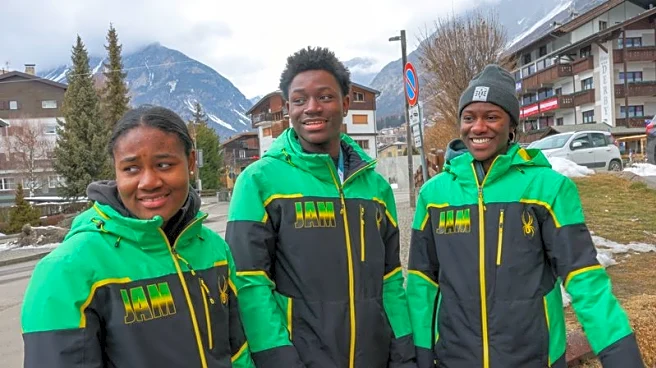What's Happening?
California Governor Gavin Newsom has indicated that he may consider running for president after the midterm elections next year. During an interview on CBS's Sunday Morning, Newsom was asked about his
potential candidacy for the White House in 2028. Initially hesitant, Newsom acknowledged that he would give the idea serious thought after the midterms. As the governor of the most populous Democratic state, Newsom is seen as a likely frontrunner in any future Democratic primary. He has been a prominent figure in opposing President Trump, challenging him on various issues including National Guard deployments and redistricting efforts. Newsom's social media presence, particularly his use of parody against Trump, has also drawn attention.
Why It's Important?
Newsom's potential candidacy could significantly impact the Democratic landscape for the 2028 presidential election. As a key figure in the Democratic resistance against President Trump, Newsom's entry into the race could galvanize support from those opposed to Trump's policies. His willingness to engage with conservative figures, as demonstrated by his podcast with Charlie Kirk, may also broaden his appeal. A recent poll positions Newsom as the preferred Democratic nominee for 2028, suggesting strong support within the party. His candidacy could influence the direction of Democratic strategies and policies in the coming years.
What's Next?
If Newsom decides to run, he will likely begin building a campaign infrastructure and securing endorsements from key Democratic figures. His decision could prompt other potential candidates to declare their intentions, shaping the competitive landscape of the Democratic primary. Newsom's actions and statements in the coming months will be closely watched as indicators of his political strategy and priorities.
Beyond the Headlines
Newsom's candidacy could highlight broader themes of political resistance and engagement across party lines. His approach to governance and communication, particularly through social media, may influence how future candidates connect with voters. The ethical and cultural dimensions of his interactions with conservative figures could also spark discussions on bipartisanship and political discourse.
